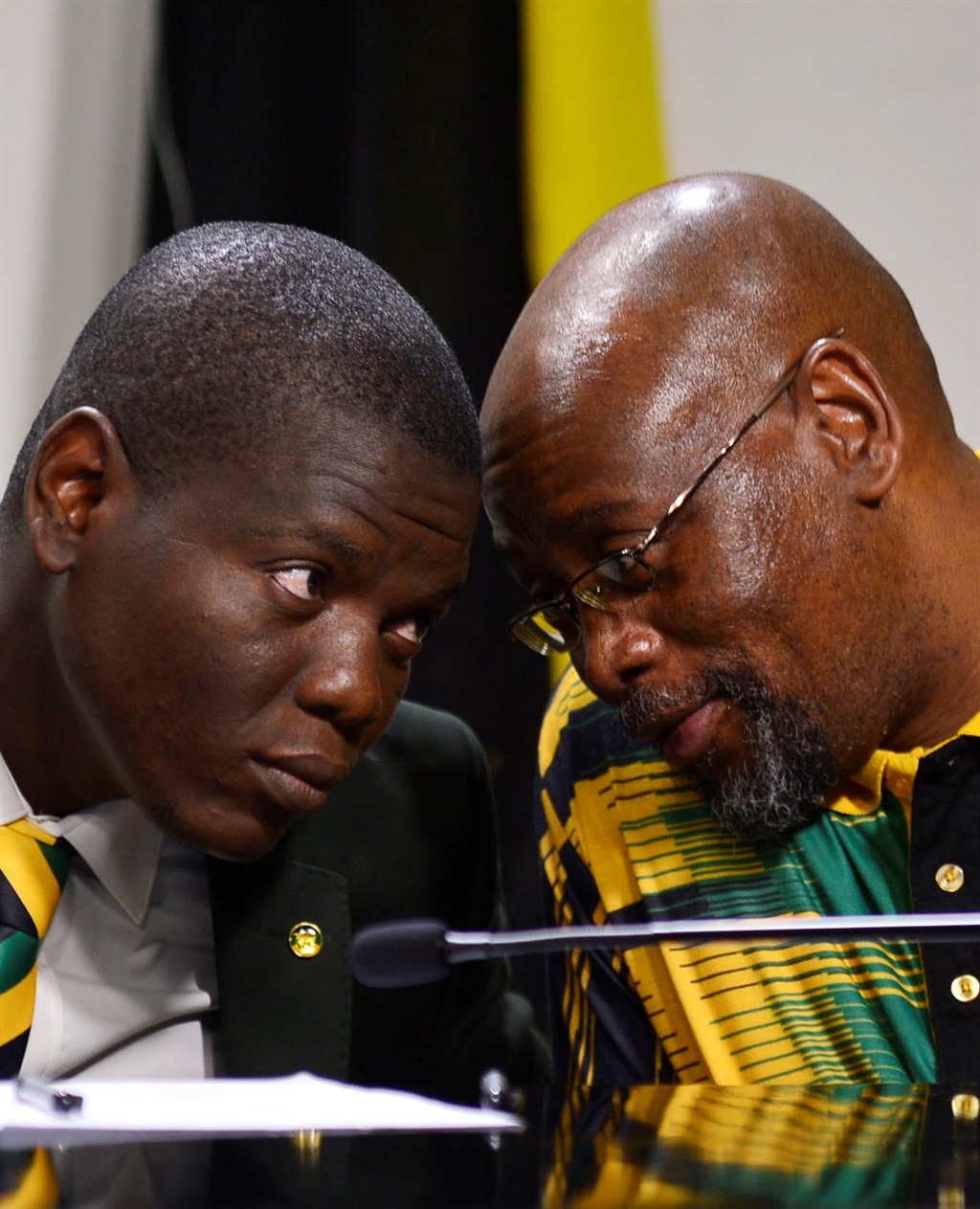
On Tuesday night Cyril Ramaphosa in his capacity as ANC president announced that the party plans to pursue an amendment to the Constitution that will allow expropriation without compensation. This sparked a national debate about the effect it will have on the economy, whether the public hearings on the matter is rendered moot by the decision and whether expropriation will necessarily lead to land reform. Analysts, politicians and the agriculture sector weighed in.
Thandeka Mbabama: ANC's smoke and mirror show over land comes to an end
The land smoke and mirror show started last year at the ANC's December conference when the party indicated that they support expropriation without compensation. In the following months, guided by cheap populism and a desire to cover up their complete failure in land reform, they voted in support of the Constitutional Review Committee (CRC) reviewing Section 25 of the Constitution.
While the DA voted against this, arguing that the problem was the ANC and not the Constitution, we approached the public hearings in good faith and set off to listen to the people of South Africa. The truth is that the ANC is simply disinterested in what people have to say because the whole process was a farce to begin with. They knew perfectly well that the true problem was an utter lack of political will on their part over the past 24 years.
Ronald Lamola: The people have spoken on land
The ANC's policies on the land question are in direct response to land dispossession and derived their roots from the communal land ownership of the indigenous people. To us in Africa land was always recognised as "belonging to the community". The land question is therefore not only an agrarian issue, but also a critical social question.
One of the difficult questions in South Africa, is that unlike in other countries where the peasants were the obvious beneficiaries of land reform, the answer to who should be the primary beneficiaries of land reform is not straightforward due to the history of land dispossession and colonial conquest.
Melanie Verwoerd: Is it time to panic about land expropriation?
Following Nasrec, the ANC became occupied with convincing President Jacob Zuma to resign. The EFF, needing a new reason for their political existence, used the vacuum provided by a distracted ANC to table the motion on land in Parliament. By passing the issue on to the Constitutional Review Committee the ANC clearly thought it could buy some time, while getting its own house in order on this issue.
Unsurprisingly, the EFF used these hearings as opportunities for political mobilisation. As more and more of the meetings took place it became clear that the EFF had succeeded in creating a false public narrative around the necessity for the constitutional amendment.
It became generally accepted that any argument against the amendment of the Constitution implied a resistance to land reform. With this inability to control the public narrative, the populist pressure (in an election year) became too much and thus we saw the announcement last night.
Mpumelelo Mkhabela: Ramaphosa land announcement reminiscent of Zuma years
Cyril Ramaphosa, president of the ANC, announced that the party had resolved to support an amendment to the Constitution to allow for expropriation without compensation. But, wasn't this a decision already taken at the ANC conference last year?
What had changed for it to be re-announced in an "address to the nation" close to midnight? Besides, Parliament is conducting public hearings. It is yet to call on those who made written submissions to come before it to substantiate their positions on the contentious expropriation proposal.
Ramaphosa should at this early stage of his presidency frame his relationship with the ANC in such a way that the party is not perceived to be interfering in matters of state. He should also not appear as though the party is leading him. The party elected him to be the leader and it shouldn't instruct him to make an "address to the nation" on party matters that could best be handled differently.
Terence Corrigan: Implications of Ramaphosa's announcement on land dire
Expropriation without compensation is a disincentive to investment, whether to businesspeople domestically or abroad. That the ANC has signalled clearly its intention to use it, and to remove (to some extent) the constitutional protections afforded against it, will only damage South Africa's prospects of attracting it. This is not, as some might put it, to "threaten" the government, but merely to point out the inevitable and entirely predictable consequences of its policy choices.
Nothing has injected greater concern and insecurity into business' views on South Africa than the prospect of assets being subject to confiscation. It places jobs and social mobility further from the country's reach. One of President Ramaphosa's investment envoys, Trevor Manuel – finance minister under presidents Mandela, Mbeki and Motlanthe – recently pointed out that expropriation without compensation was not being received favourably abroad.
Aggrey Mahanjana: Nothing new from Ramaphosa on land
Whether he himself as a business person agrees or not with the policy matters less because for the sake of winning the support of his voters he has to make these pronouncements. People must understand the political game.
Whether the Constitution is amended to accommodate expropriation without compensation or not, the attention or the focus of the people must be on how this will be implemented; and under what circumstances.
As NERPO we believe that expropriation will happen and must happen but the circumstances under which expropriation without compensation can take place are very limited. It simply won’t make a significant impact in fast tracking land redistribution in South Africa if it is for that purpose.
Elmien du Plessis: Expropriation, with or without compensation, does not equal land reform
What is being underplayed is that expropriation, with or without compensation, is not land reform in itself. Expropriation without compensation is a mechanism of acquiring land, and as such is a step in a longer process of settling people on land.
Other parts of the process are identifying suitable land for redistribution, identifying beneficiaries, determining mechanisms that will indicate who will get what piece of land for what purpose, and then of course, the details of post settlement support.
Many who are opposed to the constitutional amendment are therefore not opposing land reform itself, but are questioning expropriation without compensation as a mechanism of acquiring land for land reform.
These details got lost in the land hearings which were reduced to the binary question: Should the Constitution be amended or not? But details don't make good 5-word slogans for populism and support.
Adriaan Basson: ANC decision on land is about the election, not the economy
Why aren't the investors whose dollars Ramaphosa so badly want to bring here to create more jobs not buying his story?
Because it simply doesn't add up.
Ramaphosa's late-night "address to the nation" as ANC president had very little to do with the economy and unemployment, and everything to do with the election.
Put differently: the ANC's decision has very little to do with facts, and everything with emotion and sentiment.
By announcing prematurely that the ANC will argue for a constitutional amendment to Section 25 to make the conditions of land expropriation without compensation more "explicit", Ramaphosa has taken a calculated political risk.




 Publications
Publications
 Partners
Partners























